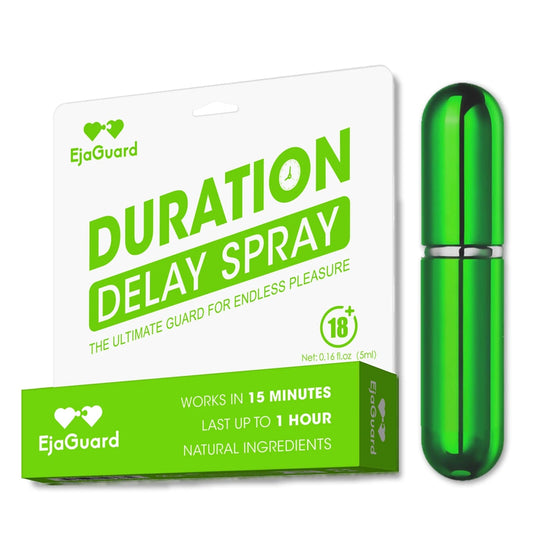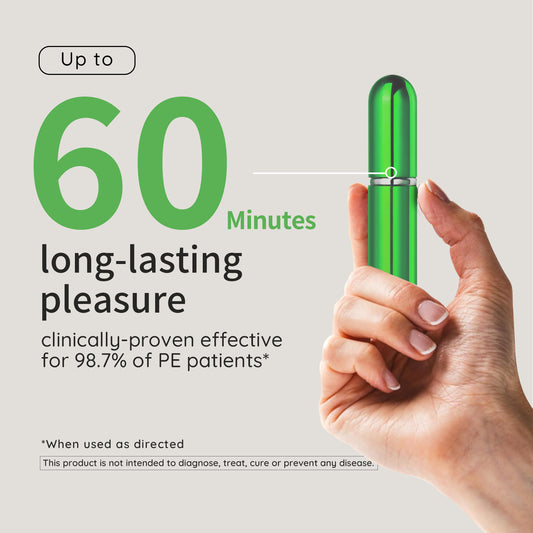Understanding the Reasons Behind Heightened Sexual Desire
Experiencing increased sexual arousal—even when you have a healthy sex life—is common. If you’ve ever wondered, “Why am I feeling so sexually charged?” you’re likely looking for a deeper explanation.
In this article, we’ll delve into the complexities of sexual desire and the factors behind a high libido. We’ll explore what a “normal” sex drive looks like for people of all genders, and we’ll also consider how your arousal levels can fluctuate naturally over time. Along the way, we’ll discuss how patterns of sexual behavior, hormonal changes like those related to the menstrual cycle, and other influences affect your libido.
Understanding the Physiological Impact of Arousal on the Body
What Does It Mean to Feel ‘Turned On’?
Everyone—regardless of gender—has a libido, or sexual drive, that fuels their desire for intimacy and pleasure. This “sex drive” affects how the body responds physically and emotionally when feeling aroused. Sometimes, these urges make us simply feel good and more connected to ourselves and others. In other cases, we might be surprised by how often we’re feeling horny all the time, even when not actively seeking sexual encounters.
The Emotional Response to Arousal
A high libido often brings a range of emotions. Many people experience happiness, excitement, or eagerness when they feel turned on. These reactions are common responses to sexual arousal, yet individual feelings vary. Depending on personal experiences, some may feel frustration, disappointment, or even disgust.
For example, someone who has dealt with challenges like premature ejaculation may feel shame or anxiety connected to past sexual encounters. These emotions can influence how frequently you think about sex and whether you see your urges as a positive part of your daily life or a source of stress.
The Physical Response to Arousal
Physical responses to sexual desire differ based on one’s anatomy.
For female individuals
- Increased vaginal lubrication
- Swelling of the clitoris, vaginal walls, and labia
- Potential changes in the vagina’s length or width
For male individuals:
- Increased blood flow leading to an erection
- Retraction of the foreskin over the head of the penis
- Discharge of pre-ejaculatory fluid (“pre-cum”)
- Swelling of the testicles
These bodily responses are natural indicators that you’re turned on and ready for intimacy or sexual pleasure.
Two Categories of Sex Drive
Sex therapist Vanessa Marin identifies two main types of libido: spontaneous and responsive.
-
Spontaneous libido: You experience sudden bursts of sexual desire throughout the day, often leading you to seek out sexual activity more frequently. This might explain why you’re feeling horny all the time, even in situations that aren’t explicitly sexual.
-
Responsive libido: You rarely think about sex until you’re actually in a sexual situation. Your arousal builds once you engage in foreplay or erotic activities.
Both types of libido are part of healthy sexuality. If you find yourself wondering why you feel so aroused—even when you’re not intentionally focusing on sex—you may lean toward having a spontaneous libido.
Factors Influencing Libido
Many factors can trigger sexual arousal, sometimes unexpectedly. These influences fall into several categories: biological, psychological, and social.
Biological Influences
Biological changes, including those connected to the menstrual cycle, sex hormones, and overall health, can heighten your libido. During adolescence, for example, people often remember intense periods of arousal that carry into adulthood.
Hormonal Fluctuations:
Hormones like testosterone, estrogen, and progesterone play essential roles in libido. In individuals assigned female at birth, estrogen boosts physical signs of arousal (e.g., lubrication), while elevated progesterone may dampen sexual desire and contribute to sexual dysfunction.
Balancing these hormones is crucial. Certified sex therapist Indigo Stray Conger recommends a balanced diet and regular exercise to maintain hormonal equilibrium. Exercise releases endorphins, which can increase energy levels and enhance sexual interest, ultimately making you feel good and potentially more sexually responsive.
Psychological Factors
Your mindset and emotional state significantly influence sexual desire. Stress, anxiety, or depression can lower your libido, making it harder to become aroused. On the other hand, positive emotions like happiness or a strong emotional connection with a partner can heighten arousal.
Self-esteem, personality traits, past experiences, and even your approach to sexual activities—whether you view them as healthy expressions or worry about things like sex addiction—all shape your level of interest in intimacy.
Social Factors
Social dynamics also affect your libido. For instance, the excitement of a new relationship often sparks increased sexual tension. In established, long-term relationships, regular sexual activity can reinforce intimacy, making you both feel good and more connected. Over time, these positive experiences can become woven into your daily life, influencing when and how often you feel aroused.
Can One Be “Excessively Horny”?
You might wonder if it’s possible to have too high of a sex drive. Rest assured, having a heightened libido is natural. Sexuality is a normal, healthy part of life that can improve mental and physical well-being, provided it doesn’t interfere with your responsibilities or relationships.
If compulsive urges or frequent thoughts about sex disrupt your work, social interactions, or emotional balance, it may be beneficial to consult a therapist or sexual health professional. They can help you distinguish healthy sexual enthusiasm from more problematic patterns that might resemble sex addiction.
Frequently Asked Questions
Why do I experience arousal in non-sexual situations?
It’s normal to feel aroused even when you’re not engaging in sexual activities. Dreams, medications, stress, or other unrelated events can spark these sensations. If you feel uncomfortable, try deep breathing, meditation, or channeling the energy through masturbation.
Does feeling horny always mean I want sex?
Not necessarily. Sometimes your body’s physiological response may not align with a conscious desire to have sex. Conditions like erectile dysfunction or involuntary arousal can create a disconnect between how you feel mentally and how your body reacts physically.
Why can’t I control my arousal?
Persistent arousal could have several causes. In some cases, it may be linked to medical conditions like Persistent Genital Arousal Disorder (PGAD), where the genitals remain highly sensitive or stimulated without conscious sexual desire. If this is a concern, consider consulting a healthcare provider.
Key Takeaways
- Feeling horny is a sign of a healthy sex drive that influences both emotional and physical responses.
- Some people have a spontaneous libido, which can mean feeling horny all the time, even without obvious triggers.
- Libido naturally fluctuates over time, affected by factors like hormones, the menstrual cycle, exercise, relationships, self-esteem, and emotional well-being.
- Healthy sexuality should fit comfortably into your daily life. If sexual urges start to feel overwhelming or disruptive, seeking professional guidance is a sensible next step.
- Recognizing the difference between normal heightened arousal and behaviors resembling sex addiction can help maintain a balanced, fulfilling sexual life.
 Buy Now
Buy Now



